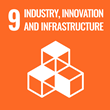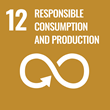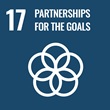Project information
Unraveling the role of polyhydroxyalkanoates in Schlegelella thermodepolymerans – promising environmental bacterium for next generation biotechnology
(PHAST)

- Project Identification
- GA22-10845S
- Project Period
- 1/2022 - 12/2025
- Investor / Pogramme / Project type
-
Czech Science Foundation
- Standard Projects
- MU Faculty or unit
- Faculty of Informatics
- Other MU Faculty/Unit
- Faculty of Science
- Cooperating Organization
-
Brno University of Technology
- Responsible person Doc. Ing. Stanislav Obruča, Ph.D.
Schlegelella thermodepolymerans is a thermophilic bacterium that was isolated thanks to capability of polymer degradation. Nevertheless, we have recently identified the extraordinary biotechnological potential of the bacterium within the concept of Next Generation Biotechnology. Apart from polymer degradation, S. thermodepolymerans is also able to produce polyhydroxyalkanoates (PHA), microbial polyesters serving as a storage of carbon and energy and enhancing stress robustness of bacterial cells against numerous environmental stressors. Moreover, PHA are considered to be an ecological alternative to petrochemical polymers. In the proposed project we will in-depth look into PHA metabolism of S. thermodepolymerans especially in the context of stress robustness of the bacterium, we will construct a detailed metabolic model, develop and optimize molecular tools for genome editing and we will also test the employment of the bacterium in the most promising biotechnological applications - production of PHA, biodegradation of polymers and biotransformation/degradation of phenolic compounds.
Sustainable Development Goals
Masaryk University is committed to the UN Sustainable Development Goals, which aim to improve the conditions and quality of life on our planet by 2030.
Publications
Total number of publications: 14
2023
-
Water potential governs the effector specificity of the transcriptional regulator XylR of Pseudomonas putida
Environmental Microbiology, year: 2023, volume: 25, edition: 5, DOI
2022
-
Building the SynBio community in the Czech Republic from the bottom up: You get what you give
Biotechnology Notes, year: 2022, volume: 3, edition: December, DOI
-
eBCSgen 2.0: Modelling and Analysis of Regulated Rule-Based Systems
20th International Conference on Computational Methods in Systems Biology, year: 2022
-
Variable Stabilisation in Boolean Monotonic Model Pools
Computational Methods in Systems Biology, year: 2022


